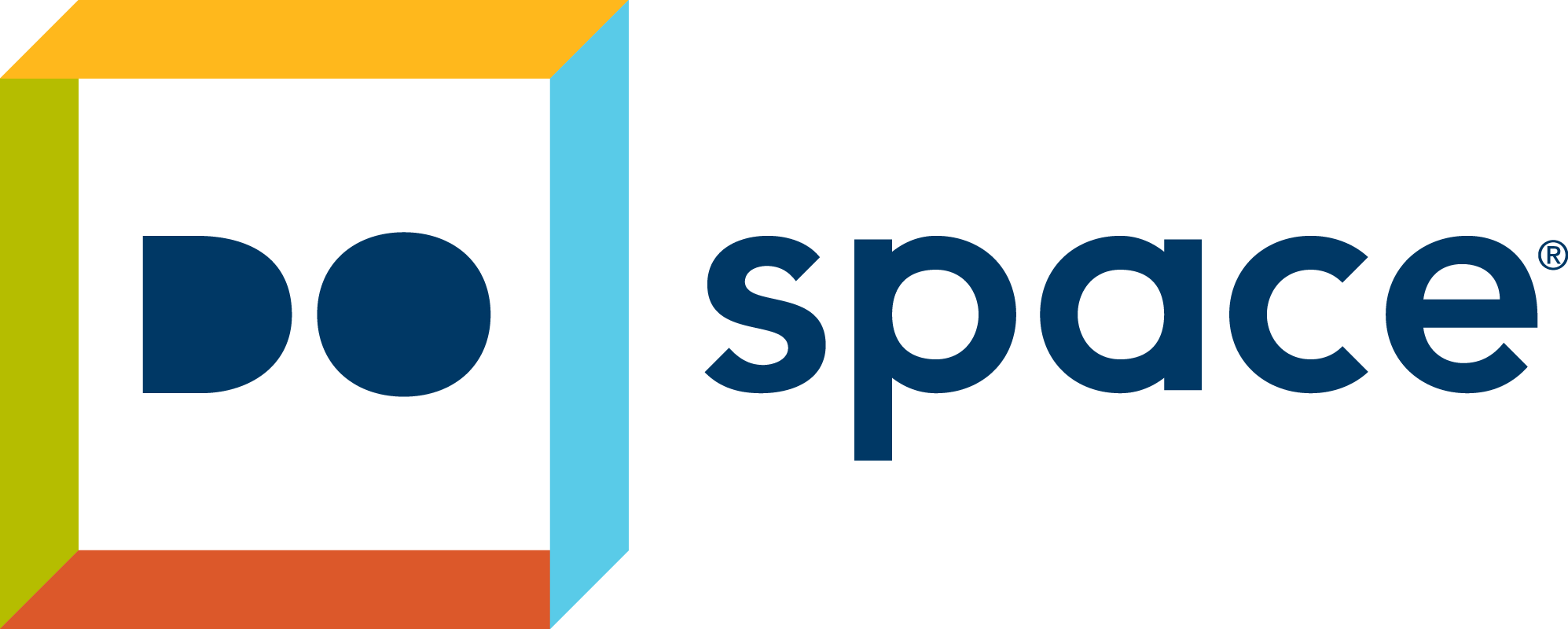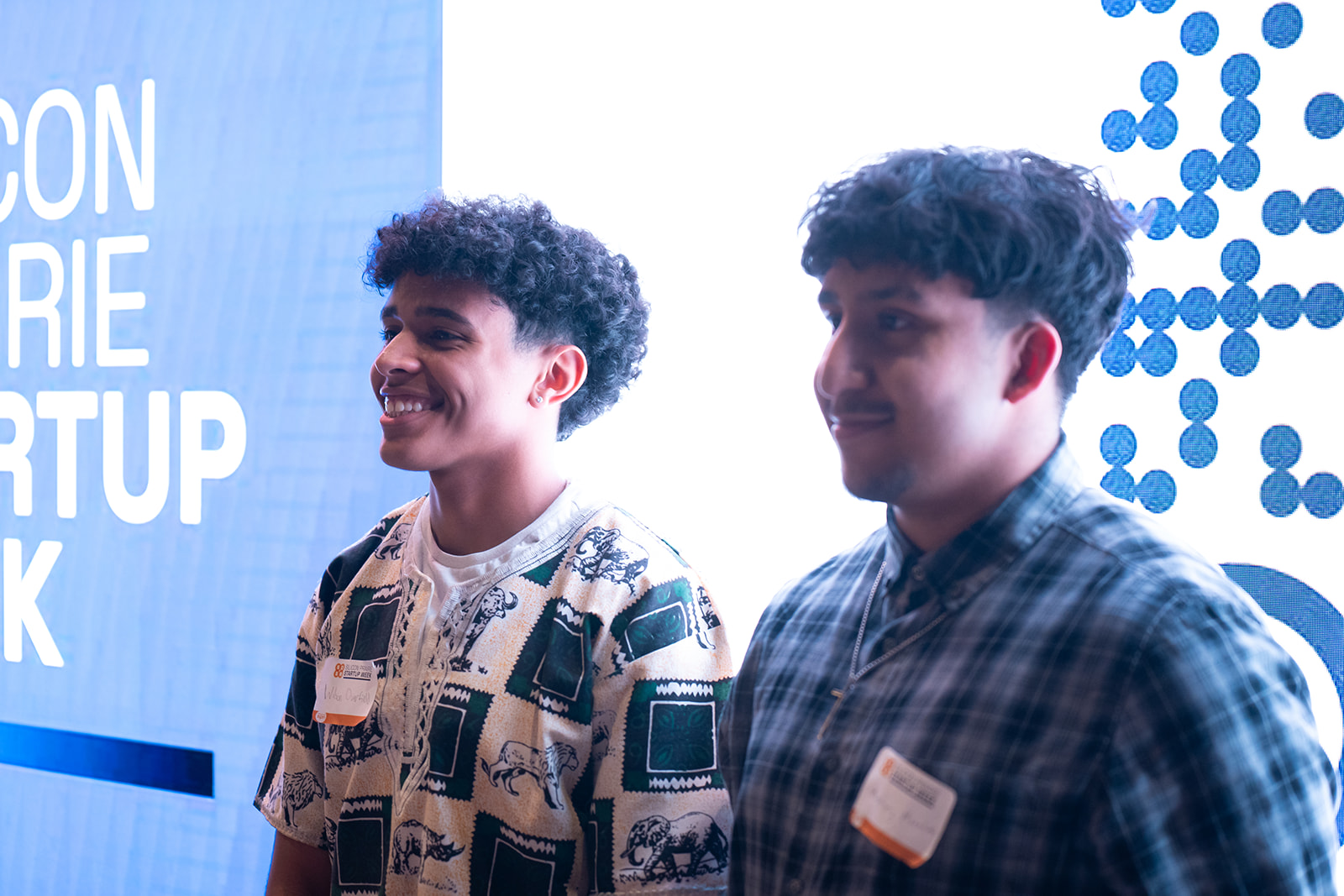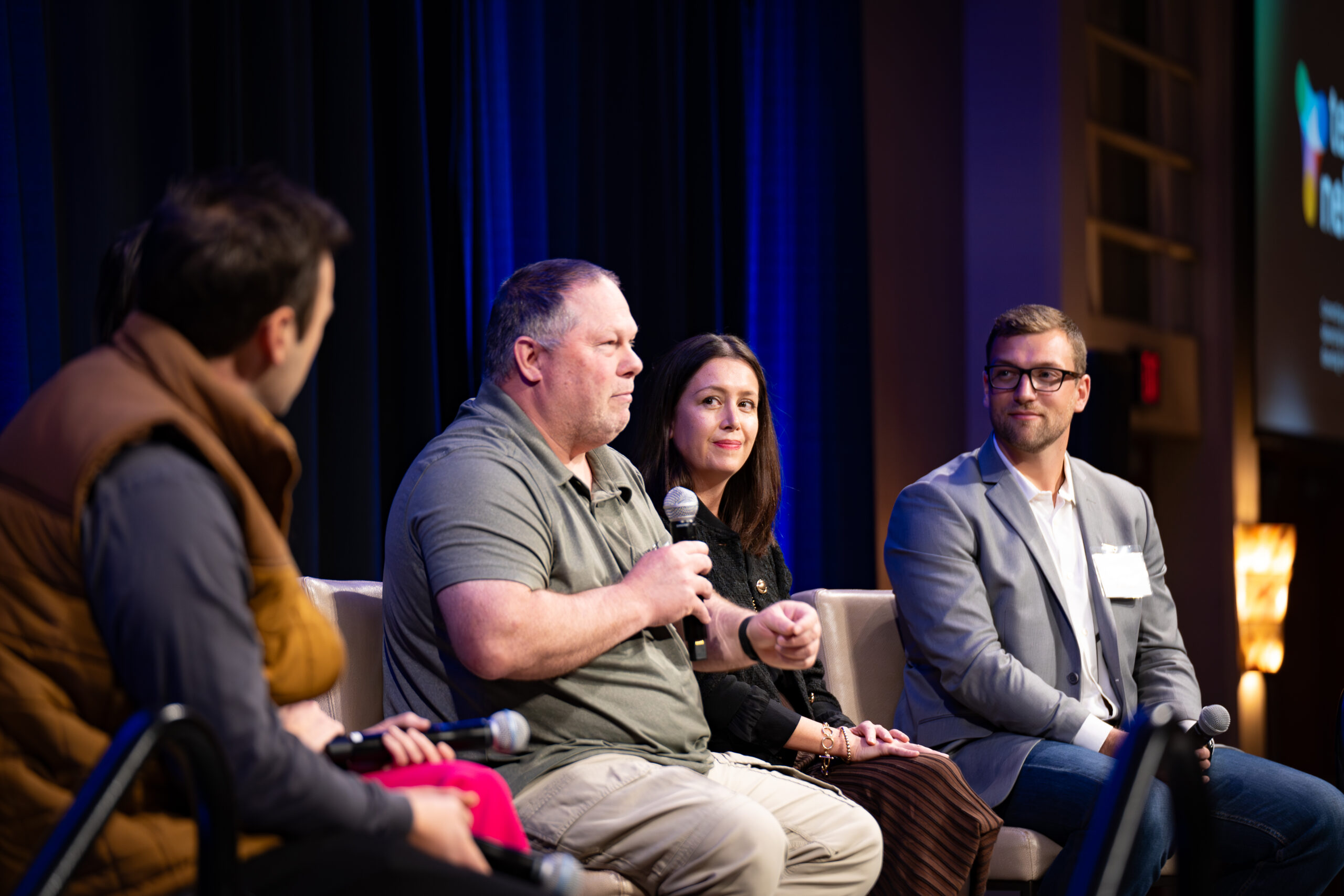It’s been a wild year. A pandemic has squeezed the global economy while also spurring innovation and unique tech-based solutions.
Silicon Prairie News reached out to entrepreneurs, investors, business leaders and government officials across Nebraska to get their take on 2020 and see what trends they think we will see in 2021.
Answers below are lightly edited for grammar and/or length.

Anthony L. Goins, Director of the Nebraska Department of Economic Development
On 2020’s impact: It’s a given that COVID-19 has been challenging for startups and essentially any business. However, the process of “adapting to a new normal” has not only increased the demand for technology, but has opened avenues of opportunity that have yet to be fully explored. While 2020 has been a challenging year, the resiliency of many business owners became the headline. Innovation occurred and digitization plans were implemented with unimaginable speed. These unforeseen forces will benefit Silicon Prairie companies as they adapt their business verticals to capitalize on an evolving world.
Predictions for next year: I believe we will see the importance of high-speed broadband internet continue to increase, particularly in rural communities where there is an unprecedented opportunity to attract an entirely new audience of “distance commuters.” We’ve also seen a sharply increased demand for all variety of agile technology solutions that address the operational and adaptational challenges being faced by businesses of all sizes — carry-out apps for local restaurants being a basic example. I think that if there is a bright side to 2020 from a business perspective, tech companies might be in one of the best positions to benefit.

Erica Wassinger, partner of Proven Ventures and Co-founder of The Startup Collaborative
On 2020’s impact: 2020 forced entrepreneurs to solve much worthier problems than we’d seen in the past. What we’ll see coming forward will be stronger companies, built on more important foundations, and likely more resilient entrepreneurs.
Unfortunately, the pandemic did not treat everyone equally. The rise of the haves and the punishing nature of the pandemic on the have-nots means we have a lot of ground to make up as it relates to equitable entrepreneurship. If we don’t get equity – not shares and stocks – in check, we’ll continue to see more Nebraska dollars flow into the usual suspects. Thankfully, with Proven Ventures and the work of The Startup Collaborative, we’re making significant progress at making entrepreneurship – thus wealth creation – accessible for everyone.
Predictions for next year: Corporations will better see and understand how to partner with startups to reach their goals FASTER! For example, Retail Aware becomes even more necessary for brands to understand their in-store engagement. HerHeadquarters will continue to give rise to female founders looking to collaborate more meaningfully. Vesta will help usher us safely and smartly back into events and in-person experiences.
The future of work has changed, that’s clear. How will Silicon Prairie companies address new flexibility needs? (Job Share Connect is my recommendation.) How will our largest employers make their benefits as interesting as their kegerator (by using Maxwell)? And, how will teams communicate and foster culture when remote becomes more routine (through Workshop, obviously)? Tech-first is here. Embracing it matters. Startups and corporates should find their win-wins.

Brent Clark, associate professor of strategic management and associate director of the Center for Innovation, Entrepreneurship and Franchising at the University of Nebraska – Omaha
On 2020’s impact: The biggest change in 2020 for tech startups is the contraction in investment funding. There just isn’t as much cash flowing into new businesses right now. Because external investment is the lifeblood of so many startups, this is a huge challenge. And because these are young companies that are still finding their feet, a huge proportion of startups only have enough cash to last for a few months. Investment has been cut about in half in many places, and my intuition is that this is about how things look right now in our region, if not a touch worse. While bankruptcies have not been as high as many predicted, there are surely more coming.
And, in addition to the funding challenge, there is also the issue of lagging consumer demand. This really varies, however, depending on the industry, especially in tech. Services like streaming and on-demand delivery have seen demand rise, while most have not. I’ll also mention one thing that has not changed all that much… for many. That is productivity. Many tech startups are very well equipped to work from home and have had surprisingly minimal disruption to their processes.
Predictions for next year: For 2021, I am cautiously optimistic. While it is more difficult to begin a company when relying on only your own funding, it is also true that tight budgets and limited resources often lead to “effectual” startup processes, meaning entrepreneurs focus on what they can achieve with what they have instead of focusing on a specific end goal and seeking out the resources they lack to be able to do it. And there is lots of evidence that effectuation can be a very productive approach to startups.
Secondly, fundamental shocks to society, like a pandemic, lead to fundamental shifts in what consumers value. This represents an opportunity for new firms that are skilled and perceptive enough to recognize and uncover those shifts to then provide products and services that address those new consumer preferences. New firms often have an advantage in quickly addressing these value shifts because older, larger firms are more embedded and invested in older methods and older value propositions. This can make them blind to consumer preferences and slow or even unable to adapt. In short, new times call for new companies that do new things.

Brian Ardinger, Director of Innovation, Nelnet
On 2020’s impact and predictions for next year: 2020 was a punch in the gut, but overall the startup community seemed to rally and adapt. The biggest change I’ve seen is that the majority of people now better understand the importance of innovation, adaptability and resilience. Disruption became immediately real and we began to get a peek at who has the skills, network, and execution capabilities to survive and thrive in accelerating change and uncertainty.
Service providers (banks, lawyers, investors) stepped up at the early stages of the pandemic to help startups navigate things like PPP loans, closing bridge rounds, and connecting founders to resources. Ex: Union Bank was one of the largest service providers of PPP loans (in the country) and rolled up their sleeves to get as many companies through the process. The community is strong and adaptive.
Gatherings like our weekly Open Coffee went remote, as well as our IO2020 New Innovator’s Summit. The move to remote broadened the network of folks participating in our ecosystem – founders, investors, and world experts took part. The remote nature broke down normal barriers of traveling and increased connections that either weren’t happening or were more difficult to make happen.
The launch of gener8tor/NMotion’s startup studio model in the middle of a pandemic (along with new investment and corporate participation) was a big win and should bode well for the region in 2021 and beyond. 2020 sped up the adoption of technologies and new ways of work that will be beneficial, long-term.

Sen. Megan Hunt, entrepreneur and State Senator for Nebraska’s 8th District
On 2020’s impact and predictions for next year: I think the challenges and opportunities of 2020 showed us how technology and startups can work with government to not only be efficient with our resources, but supportive of local talent.
Going forward I would love to see more public-private partnerships with our amazing tech companies in the Silicon Prairie.

Scott Henderson, Managing Director of NMotion, a gener8tor program
On 2020’s impact: People are reassessing their priorities and we’ve seen talent and investors suddenly WFH reaching out via video chat to find new opportunities in middle America. And we’ve seen regional ex-pats (like me) decide to return to help the region however they can using their experiences while living away.
NMotion launched two new programs, both which were 100% virtual, that attracted aspiring entrepreneurs from across the country and across the state. Without a doubt, the caliber of applicants for the $100k investments for the NMotion Accelerator Studio was the highest in our history. We’re looking forward to weaving these talented founders into the community.
Predictions for next year: This past year shook everything and everyone. Cracks in the seemingly impenetrable walls of the status quo opened up and we as a region have an opportunity to offer up better solutions to the problems the events of this year uncovered. Trends have accelerated: remote/hybrid work, automation, distance learning, telemedicine, and other unexpectedly quick adoptions of technology. But how we take advantage of the cracks in the status quo to generate the next wave of great companies is the key.
Look at the companies that came from the fallout of the 2008-09 financial crisis who are just hitting their strides and/or exiting in ways that generate wealth for the founders and employees. The next Quantified Ag and the next Flywheel, both sold for large dollar amounts, are sitting in someone’s notebook or mind wanting to be drawn out into the light.
How do we create an environment that allows for a thousand flowers to bloom in different communities across the region? How can we encourage more pitch competitions, idea challenges, unconferences, hackathons, and other bottom-up innovation frameworks? How can encourage more folks in the region with wealth to reinvest that wealth through more venture funds?
My prediction is you will see the trend of more founder-led efforts to provide the space and support for new founders to emerge and create new companies that solve new and old problems that 2020 has made quite visible.

Todd Smith, CEO of Symphony Workforce
On 2020’s impact: While the events of 2020 may have dampened startup enthusiasm, causing potential entrepreneurs to delay or shelve their startup dreams, it may have given a boost to tech-based startups. Nebraska’s small slice of the world was forced online to the benefit of those savvy enough to lead startups that relied on both traditional platforms (is it too early to call social media platforms traditional?) and new tech innovations. Innovation didn’t die – it iterated like it always does.
Predictions for next year: Data: It will be more widely shared or those who closely hold it will be more widely lampooned for their stinginess. Look at the macro trend of calls for breakup of data giants Facebook and Google. The mix of data and “story” will be required to drive investment of capital and success.
Scale: Investors are seeking innovations that impact a critical mass of individuals while driving change. This will be critical for any startup to be successful regardless of industry vertical.
Collaboration: Organizations, whether for- or not-for-profit, that are serving the same market will be expected to work more closely together to win and keep customers. From small restaurants who work out common space sharing arrangements to nonprofits serving the underserved, dollars will flow to those who deliver returns on investment through innovative collaboration. This applies to the workforce as well with independent contract workers increasingly intersecting the long-led traditional W-2 workplace.

Josh Nichol-Caddy, Technology Commercialization Director, Nebraska Business Development Center
On 2020’s impact: NBDC saw more interest in the federal Small Business Innovation Research (SBIR) and Small Business Technology Transfer (STTR) programs. NBDC and other service providers offered more training events about the program in general; most of these events were conducted online, which increased access to innovators across the state. I think researchers and entrepreneurs had more time and began to think differently about their work and how to fund it.
Predictions for next year: Many of the innovative technologies I saw in 2020 focused on direct impacts of the pandemic. I think this will continue, though with technologies focusing more on indirect impacts or providing specific solutions as different problems or needs emerge.

John Bunting, CEO of Beeso Studio
On 2020’s impact: At the end of March, I was in a meeting with an investor, the news broke about shutdowns happening nationwide and instantly the startup landscape changed. COVID impacted investment, slowed startup growth and forced startups to pivot. I think the startups that have been able to pivot, get traction and secure investment despite the challenges of 2020, are stronger for it. The startups in our portfolio certainly are stronger.
Predictions for next year: In 2021, I think AI/machine learning/automation will continue to trend upwards. I also think there will be an increased focus on medical startups and new startups will emerge that support the “remote working” economy. Additionally investment into startups will remain flat until mid-2021 when some of the economic uncertainties diminish.

Jeff Slobotski, VP, Business and Ecosystem Development, Millwork Commons
On 2020’s impact: 2020 has changed the Silicon Prairie startup community in many ways. We’ve always been known as a community that has worked with the resources that we have vs. creating companies that may not provide true value or solve a real need. I think that 2020 has caused us to look inwardly, even more, to determine what’s the highest and best use of our time and what can be stripped away to allow us to move forward stronger as a community.
Predictions for next year: I’m excited for what I sense is a renewed focus on reconnecting and building the Silicon Prairie community back to its vibrancy of several years ago. There have still been activities and efforts to focus on strengthening the community, but it feels like several companies and individuals have expressed energy and desire to do what we can to put the community back on the map regionally and nationally.

Christina Oldfather, Director of Innovation and Entrepreneurship, Lincoln Partnership for Economic Development
On 2020’s impact: 2020 has required everyone to think outside of the box. While it has definitely been a rough year, the silver lining is that it helped facilitate change very quickly-the way we communicate, the way we connect, and the way we work. These changes have also increased accessibility to community, programs, and resources by decreasing barriers like time and travel. It’s super easy to jump on a Zoom call to meet with someone when there is no commute time! 2020 also exposed new problems to be solved, while also creating a lot of early adopters out of necessity. Quickly shifting to all remote work in industries that would never have considered it prior to 2020 and the proliferation of virtual conferences and platforms are just a couple of examples from this past year.
Predictions for next year: I think we’ll see an increase in startups working on big problems that were exposed in 2020 and pivoting and innovating in industries adapting to markets that may be disrupted long term by the impact of the pandemic. In the Silicon Prairie, I think opportunities will continue to grow in agtech, fintech, and supply chain/manufacturing solutions — industries that are changing in response to the pandemic and are also areas of strength for our region.
I also predict we will see more people, especially tech workers, choose to live the good life here in Nebraska/Silicon Prairie, as more employers shift towards full time remote work and people can choose to live wherever they want based on livability, not employment.
Finally, I hope we will see an increase in the number of founders building companies in the Silicon Prairie. As unemployment increases and industries change, people may turn to entrepreneurship out of necessity and/or opportunity. I think we will see more people starting companies and more people connecting and utilizing the infrastructure in our startup ecosystem.

Greg Daake, Principal and Creative, Daake
On 2020’s impact: In times of drastic change, it’s the learners who are best equipped for the future. “Learner” is an accurate characterization of the entrepreneurial, technology startup personality. I think 2020 has reshuffled the deck of priorities for many people and organizations. Primarily how to operate a business remotely and how to nurture culture through a monitor screen – not to mention lead the charge. In other words, many businesses are wondering, “Is this the new normal? And if so, what new technology is out there to help my business perform and grow?” I, like many business owners, am more open to change than likely ever before.
Predictions for next year: While people long for “normalcy” there will be things that persist as beneficial from the social distancing. Leaders will continue to question if they “need” an office and if so, do they need quite as large of one? I don’t imagine people will rush right back to high rents and overhead. They will become more emotionally committed to the notion of contribution over compliance. Work/life balance will give way to life/work balance. A new sense of wellness will emerge that includes intangibles like freedom, permission and stillness. I predict this tolerance we’ve seen in who’s in the background of our cameras, who’s barking off-screen through the microphone, who’s wearing a hat or sweatshirt or hasn’t shaved or is outside walking during a meeting will extend into more substantive revolutions for businesses.

Kelly Ross, Founder and Executive Director, ECHO Collective
On 2020’s impact: I think the employment instability felt from the pandemic caused a lot of folks to reassess what other ways they can make money. In a lot of ways, this mindset helped level the playing field and stirred up the entrepreneurial spirit in a lot of us. Our flagship project, The Refinery, helped tap into the skills that local immigrant women have and can leverage to create additional income for their families.
Predictions for next year: In my opinion, our society is going to experience the roaring 20s again – a century later. The isolation and social sacrifices people made throughout this pandemic will spur many of us to live life to the fullest, which includes acting on those entrepreneurial impulses that have been living in the back of our minds for years. And on the home front, The Refinery looks forward to accelerating at least 15 women-owned, immigrant-run businesses in 2021.

Tom Chapman, Principal of Chapman and Company
On 2020’s impact: I am not sure that 2020 “changed” the environment. Omaha and Lincoln both saw a reduction in first fundings and early stage deals. There were some big deals done – Adjuvance in January, Monolith Materials in August, OpsCompass and Retail Aware in March. But, I think the bigger deal is the overall slowing of the pipeline of transactions. I think that 2020 also helped shape an environment where there were more relationship-style deals. These relationships were forged for years rather than ones that were built digitally. If anything, it reveals the limited nature of many of the early stage company connections to funders.
Predictions for next year: My prediction for Nebraska’s startup scene for 2021 is that it will have a nice boost in Lincoln from Scott Henderson joining nMotion. I also think that you will see some new deals from companies and founders that exited in 2019. For example, Logica is a cool new startup founded by Leandro and Carissa Castro formerly of Multi-mechanics. I also think that you will see some new funds get announced and launched. So, overall I am optimistic that 2021 will be a fairly good year for startups in Nebraska – particularly early stage ones.

Roger Kassebaum, COO of Exseed U and Venture Partner, Wiase Capital
On 2020’s impact: The negative effect in that is lack of face-to-face meetings slowed deal making and funding in some areas. A positive effect that occurred for me and my effort to connect youth with Silicon Valley investors and startups was enhanced because nearly everyone became competent with Zoom and similar virtual connectivity. I think the way we educate will be enhanced by Gen Z being comfortable with virtual connectivity.
Predictions for next year: There is increasing public awareness and interest in entrepreneurship and the demand for tech education. I think 2021 will be “the year of the startup” in Nebraska. Omaha is starting a chapter of Founder Institute which will nurture a cohort of 25-30 new startups, and Founders Bootcamp will provide a pipeline of youth that will feed Founders Institute and attract more students to the tech and business sectors to the university systems in Nebraska.
 Paul Smith, President of Black Dog Management
Paul Smith, President of Black Dog Management
On 2020’s impact: Two things about 2020 really stood out. First, we saw a major shift to remote work. While many Silicon Prairie companies already allowed remote work and flexible work schedules, they had to embrace a fully-remote work model almost overnight. Many tech companies are known for their fun and engaging workplace cultures, and culture is challenging to maintain when everyone is remote. So they have had to get creative and figure out ways to stay connected.
Second, we saw the urgency with which we must be inclusive and equitable in recruiting, hiring, and creating our workplace cultures. Companies like Flywheel are a great example. They have been working to increase the diversity in their workforce, and have really stepped up and become even more intentional about its role in making change in the company, in the community, and within the tech industry. The tech industry needs to stay focused on this and to recognize it as an opportunity. Within Millwork Commons we’re trying to foster collaboration and contribute to increasing tech education opportunities and startup resources for people of color.
Predictions for next year: I think the startup and technology community will figure out ways to bounce back and support one another as we move into what will be the new realities for the industry. We’ve seen this in the way that companies and individuals have stepped in to help find roles for those who have been laid off. The pandemic has had uneven effects – some businesses grew while others were hit hard. In the long term, the pandemic will accelerate adoption of and investment in tech.
The pandemic has exposed the value and deficiencies of remote work. So we will see more remote work but the office will become even more important as the hub for building culture and relationships that are the building blocks of successful companies.
The pandemic also changed the role geography plays in supporting successful startups. The whole idea behind the Silicon Prairie is that you don’t have to be in Silicon Valley or other major tech hubs to make big things happen. In 2021, I think that message is going to be even more clear and tech will become even more decentralized as people leave high cost of living areas. I think the Silicon Prairie will come out of the pandemic uniquely suited to draw and retain talent and companies due to all of the things we’ve been talking about for a decade that are advantages to living and doing business in our region.
Lastly, the movement for businesses to intentionally support diversity, equity and inclusion will become stronger. Successful businesses will integrate DEI into how they do business.
Looking for more year-end content? Check out SPN’s list of our top stories of 2020.




